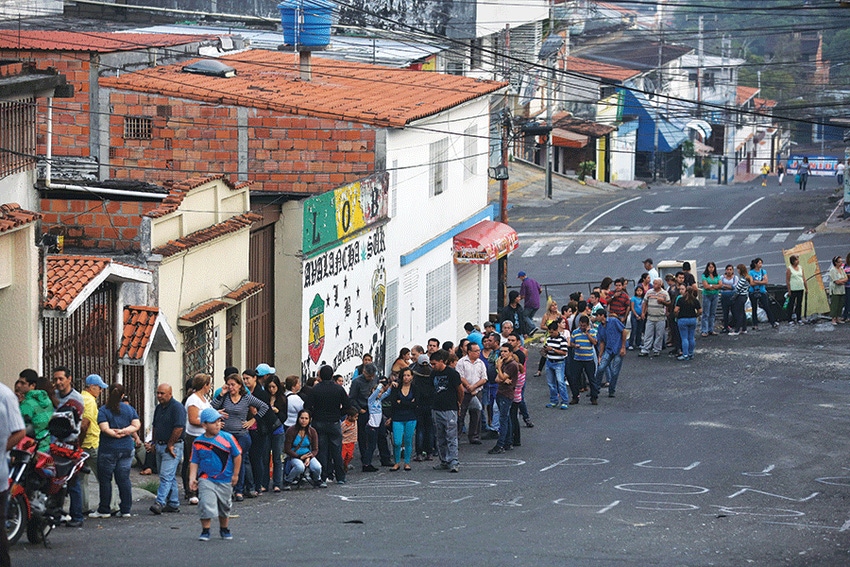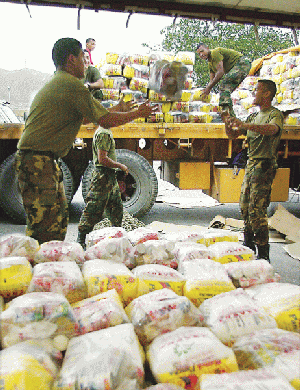
There is a long, long list of things for which we, as citizens of our great country, can be thankful — many that we take for granted, chief among them an abundant supply of immensely varied foods.
As a percentage of all yearly consumer expenditures, we spend, on average, less than residents of the 80-plus countries for which the USDA compiles data, about 6.4 percent. Compare that to France, 13.2 percent, Russia 31.6 percent, China 26.9 percent, or Pakistan, about 50 percent.
IT’S FREE! Stay informed on what’s happening in Mid-South agriculture: Subscribe to Delta Farm Press Daily.

With inflation rampant and Venezuela's economy on the rocks, food and household supplies are scarce...and expensive.—Getty Images/Oscar Gabetta
Our enviable position is thanks to a lot of arable land and the continually increasing efficiency and productivity of the American farmer and the U.S. food distribution system. While only about 15 percent of the U.S. food supply is imported — including 50 percent of fresh fruits, 20 percent of fresh vegetables, and 80 percent of seafood — America enjoys a level of food security that ranks it No. 1 worldwide, followed by Ireland, Singapore, Australia, and The Netherlands.
That is a statistic for which the average person gives nary a thought, expecting that their supermarket shelves and bins will always be filled with the products they want, when they want them.
But food security isn’t a given. One has only to read about Venezuela, where government mismanagement and economic woes have resulted in widespread privation for its citizens.
Important upcoming events: Delta Farm Press Calendar of Events
The International Monetary Fund is predicting that inflation there could soar to 720 percent this year. Reports are that almost 90 percent of residents don’t have enough money for food. A kilogram of sausage (2.2 lbs.) can cost $1,055, a kilogram of corn meal $150. It is estimated that more than 80 percent of basic food items can’t be had; equally unobtainable are necessities such as toilet paper and toiletries. In many areas, electricity is shut off several hours daily.
There have been food riots, mass lootings, and reports of people hunting dogs, cats, and pigeons to eat. Others dig through dumpsters and trashcans in search of food scraps.
The irony is that Venezuela, an OPEC member, ranks at the top of countries with proven oil reserves, and was awash in petro-money when oil was $100-plus per barrel.
But it isn’t food secure, importing about 70 percent of the goods it consumes.
About the Author(s)
You May Also Like




